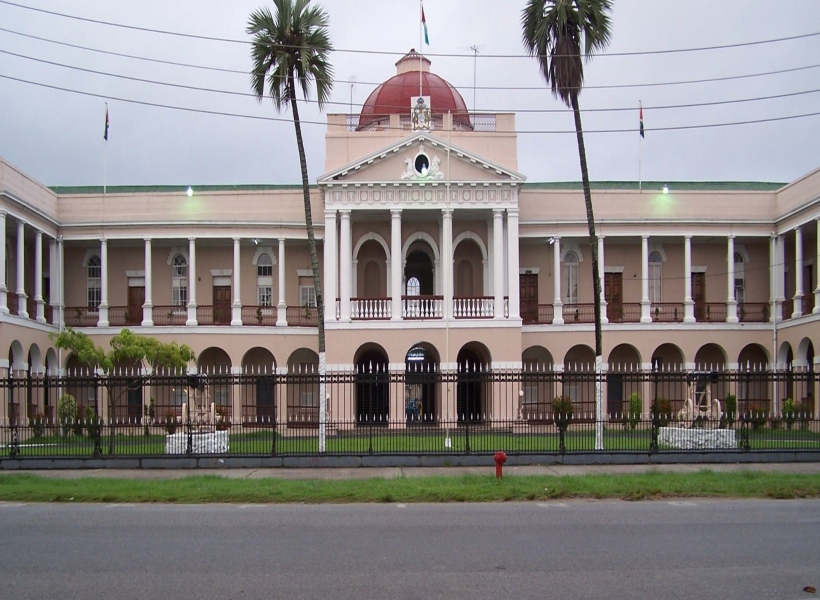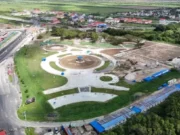Dear Editor,
In her letter of the Kaieteur News edition of August 12th and Stabroek News edition of August 13th, 2023, Janette Bulkan contended that Guyana is looking more and more like the totalitarian State of Oceania in Georgia Orwell’s novel 1984. The learned professor’s crude assertion is premised on her views in respect of the Petroleum Activities Bill. In this regard, she argued that the Bill confers too much power onto a non-technical minister, the government’s failure to establish a Petroleum Commission and the government’s rejection of the APNU+AFC proposed amendments to the Bill.
Editor, I would like to address the foregoing concerns and contentions by Janette Bulkan exclusively in another essay; which will follow as a part two to this essay. For now, I wish to present to your readers some interesting facts and background in relation to Janette Bulkan and address the notion of whether there are features of totalitarianism emerging in Guyana.
Totalitarianism is defined as “a state of government that is centralized and dictatorial and requires subservience to the State”. Based on this definition, there was a time when Guyana was such a State, in the pre-1992 era. Further, in referencing the above case study, in Orwell’s nation, “the citizens have no individual rights or human agency to behave, think, or live the way they want. The totalitarian regime demands complete uniformity, and any deviation from the norm is considered a threat to the State and severely punished. In order to ensure uniformity and identify political dissidents, the population of Oceana is under constant surveillance”. These features of totalitarianism are not present in the Guyana of today.
If there were any features signaling a return to a totalitarian State in the case of Guyana in recent times, there are several credible examples of such under the former government during the period 2015-2020. Hereunder, are some examples that I can relate to:
a) Whenever the former government engages in public consultation to shape any national policy, legislation and even the national budget, this exercise was always a facade. The results from the consultations were never reflected in the final product. For example, the local content policy, I participated in submitting extensive contributions on behalf of the business associations in Guyana, the same during budget consultations, and not a single contribution were ever taken on board.
b) The former government went against their own Commission of Inquiry’s (COI) recommendations in relation to the sugar industry. The COI report concluded in unambiguous terms not to close any sugar estates at that time considering the socio-economic impact. Yet, the former government disregarded this advice which resulted in the termination of over 7,000 sugar workers.
c) The former president refused on many occasions to meet with legitimate stakeholders such as the private sector bodies leaders’ during his tenure.
d) The former president engaged in multiple constitutional breaches, such as the unilateral appointment of the former Chairperson of GECOM.
e) And of course the 2020 elections fiasco where there was a desperate and transparent attempt to steal the elections by the APNU+AFC.
There are many more examples, but as I have indicated, I can personally relate to and confirm those mentioned above.
Contrast that type of behavior by the former government that are more so in conformity with totalitarian tendencies; reflect on the fact that the incumbent government engages directly with the people through community outreaches all across the country, subject itself to harsh criticisms from the people on the ground, make decisions on the spot to bring about the necessary interventions in response to their issues; and those engagements help in a major way to inform policymaking.
Additionally, reflect on the fact that the Local Content Act, the new model Production Sharing Agreements, the Petroleum Activities Bill, the Low Carbon Development Strategy (LCDS) were subject to public consultation. In the case of the LCDS, the Amerindian communities were not merely consulted, but were directly involved in the process to craft the updated LCDS. Consequently, the feedback obtained from these consultative engagements―have been taken into account to a large extent in the shaping of the final products. The same is true every year during the national budget consultations. Yet, Janette Bulkan extends lofty praises for the former APNU government, and she continues to do so even though now they are not in government.
Janette Bulkan’s endorsement for the APNU+AFC/PNC is not one that is underpinned by the merit of their policies per se; rather it is based on the fact that her sibling served as a former minister under the APNU government. In this respect, I confirmed that Ronald Bulkan, former minister of communities, is her brother. This explains why Janette Bulkan has a track record of antagonizing the PPP/C government in the pre-2015 era, she then went missing during the period 2015-2020, and re-emerged in 2020 to present.
With this in mind, imagine Janette Bulkan has the audacity to pretend as though she cares in a genuine way for the Amerindian people, while she labeled the carbon credit deal fraudulent. A deal that will transfer tangible benefits to the Amerindian communities to finance their village development programmes. Thus, it is reasonable to question her integrity and credibility at this point since she had no such concern for this same group of people during the period 2015-2020 under the former government.
One would recall that the former government terminated some 2,000 Amerindians who worked in their communities as Community Support Officers (CSOs), effectively taking away about $4billion annually from the Amerindian villages. This is not the only injustice to the Amerindians by the former government that Janette Bulkan supports. The former government also added VAT on domestic air transport which increased the cost of goods and airfares for the people residing in hinterland communities. It is worth mentioning that the Amerindian Land Titling project was left dormant under the former government.
The above-mentioned are just a few of the atrocities inflicted upon the Amerindian communities by the former government. However, it is the same Janette Bulkan who now pretends to be the champion for the very people whom she had no interest in fighting for their rights to be restored, much less for more benefits.
Editor, in light of the foregoing revelations, how can the Guyanese people trust Janette Bulkan and her colleagues? They have absolutely no legitimate intention whatsoever and no credibility. Clearly, they all have a common political agenda.
Yours respectfully,
Joel Bhagwandin









